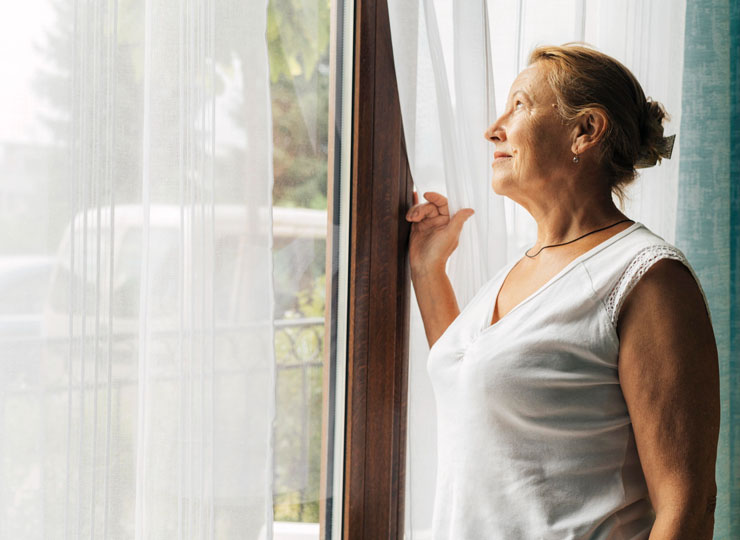
April 19, 2023
As the weather warms and the days grow longer, it may be a good idea to take a loved one with Alzheimer’s disease outdoors for a walk. A new analysis found that exposure to bright light may help to improve memory and thinking skills in people with dementia.
For the study, researchers pooled results from 12 high-quality studies that looked at the effects of light therapy, or exposure to bright, simulated daytime sunlight, on people with dementia. Light therapy is commonly used for people with seasonal affective disorder, which causes the onset of depression during the winter months when the days grow short and sunlight diminishes. Exposure to bright UV light via light boxes for an hour or so several times a week is known to boost mood and promote sound sleep in people with seasonal affective disorder.
This analysis looked at 766 men and women with Alzheimer’s disease and other forms of dementia who had participated in various studies of light therapy. Most were in their 70s or 80s. Among the study groups, 426 had been randomly assigned to undergo light therapy, while the remainder served as controls. Light therapy sessions typically lasted from several minutes to up to two hours, and from a couple times a day to up to five times a week.
The analysis, published in the journal Brain and Behavior, found that those who had light therapy tended to score higher on tests of memory and thinking skills. Exposure to bright light “improved cognitive function in patients with dementia,” the authors wrote. “This suggests that phototherapy may be one of the most promising non-pharmacological interventions for improving core symptoms of dementia.”
While light therapy seemed to provide a cognitive boost, it did not seem to have a significant effect on behavioral issues related to Alzheimer’s disease. Such symptoms include aggression, depression, wandering, asking the same question over and over, and other behavioral or psychological problems. There was some suggestion that light therapy might help to ease agitation in people with dementia, though the effects were not statistically significant. Light therapy also did not seem to have a significant effect on sleep.
Earlier research has suggested that light therapy, in various forms, can provide benefits for people with Alzheimer’s disease, including easing agitation and symptoms of depression. Light therapy is also far safer than antipsychotic drugs, which are often prescribed to people with Alzheimer’s to ease agitation and aggression but which can have serious side effects.
Similarly, spending more time outdoors getting natural sunlight may also have benefits for people with Alzheimer’s disease. Exposure to bright light early in the morning might be particularly beneficial to signal to the brain that the night is over, helping to reset the brains natural circadian rhythms.
Experts recommend that those with Alzheimer’s have regular exposure to natural light in their homes during the day and go outside whenever possible. If you’re caring for someone with Alzheimer’s, take them out during the day for a walk, or allow them to sit outdoors in the sunlight. Try to bring more natural sunlight into rooms where people with Alzheimer’s spend their time. If getting outdoors is difficult, use bright indoor lamps that use natural sunlight-simulating bulbs.
By ALZinfo.org, The Alzheimer’s Information Site. Reviewed by Eric Schmidt, Ph.D., Fisher Center for Alzheimer’s Research Foundation at The Rockefeller University.
Xinlian Lu, Chengyu Liu, Feng Shao:“Phototherapy Improves Cognitive Function in Dementia: A Systematic Review and Meta-Analysis.” Brain and Behavior, April 5, 2023











